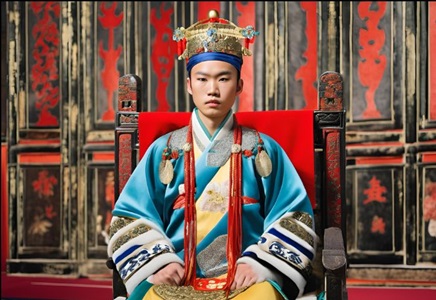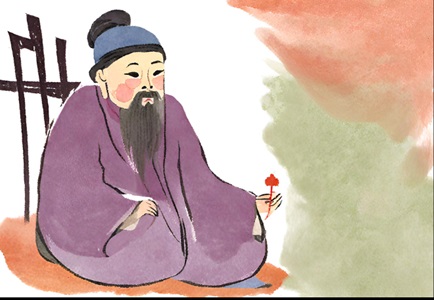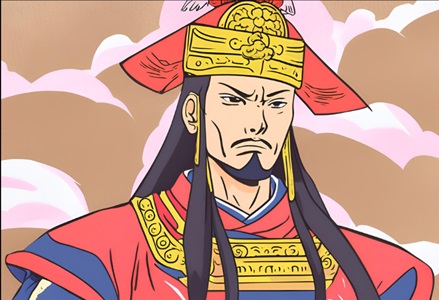Title of Biography in Chinese, Pinyin: 伊尹传 (Yī Yǐn Zhuàn).
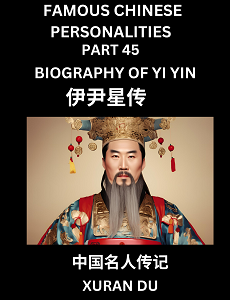
Title of Biography in English: The Biography of Yi Yin.
Check out books on my Amazon and Barnes & Noble homepages as well as the following pages to learn Biographies of famous Chinese personalities-
- Part 1 – Chinese Biography Book Series for Beginners
- Part 2 – Chinese Biography Book Series for Beginners
- Part 3 – Chinese Biography Book Series for Beginners
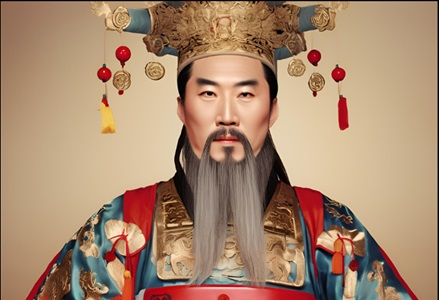
The Biography of Yi Yin in English (英文传记)
Biography of Yi Yin
Yi Yin, a prominent politician and thinker of the early Shang Dynasty, is renowned as the “Ancestor of Chinese Cuisine.” He was not only King Tang’s trusted assistant but also one of the founding heroes of the Shang Dynasty.

Yi Yin came from humble beginnings but possessed innate intelligence and a diligent nature. He excelled in culinary arts and gained insights into governance through cooking. King Tang heard of his talents and personally invited him to serve as his prime minister. Yi Yin assisted King Tang in planning the war to defeat the Xia Dynasty, contributing significantly to the establishment of the Shang Dynasty.
In politics, Yi Yin advocated governing the country with morality and promoting benevolent policies. He advocated frugality, opposed extravagance and waste, and focused on improving the people’s livelihood and addressing their hardships. Through a series of policy measures, he improved the people’s lives, stabilized social order, and laid the foundation for the long-term prosperity of the Shang Dynasty.
In terms of philosophy, Yi Yin proposed the idea of “harmony through the five flavors,” comparing governing a country to cooking and emphasizing the need to调和 various contradictions to achieve harmony and stability in the country. This idea has had a profound impact on later generations and is considered a treasure of ancient Chinese philosophy.

Yi Yin’s life is filled with legendary color. From a humble chef, he relied on his talent and hard work to become a founding hero and outstanding politician of the Shang Dynasty. His governance philosophy and philosophical ideas have left valuable assets for later generations.
Learn Biography Of Yi Yin in Chinese (中文传记)
伊尹,商朝初期的杰出政治家、思想家,被誉为“中华厨祖”。他不仅是商汤王的得力助手,还是商朝的开国元勋之一。

伊尹出身贫寒,但天资聪颖,勤奋好学。他精通厨艺,通过烹饪之道领悟治国之理。商汤王听闻其才,亲自前往聘请,任命他为相。伊尹辅佐商汤王,策划了灭夏的战争,为商朝的建立立下了赫赫战功。
在政治上,伊尹主张以德治国,提倡仁政。他倡导节俭,反对奢侈浪费,注重民生,关心百姓疾苦。他通过一系列的政策措施,改善了百姓的生活,稳定了社会秩序,为商朝的长期繁荣奠定了基础。
在思想上,伊尹提出了“五味调和”的哲学思想,认为治国如同烹饪,需要调和各种矛盾,使国家达到和谐稳定的状态。这一思想对后世产生了深远的影响,被誉为中国古代哲学的瑰宝。
伊尹的一生,充满了传奇色彩。他从一个普通的厨师,凭借自己的才华和努力,成为了商朝的开国元勋和杰出的政治家。他的治国理念和哲学思想,为后世留下了宝贵的财富。
Yi Yin Biography Keywords- English, Chinese & Pinyin (关键词)

- 伊尹 (Yī Yǐn): a renowned politician and thinker of the early Shang Dynasty.
- 中华厨祖 (Zhōnghuá Chǔzǔ): Title given to Yi Yin for his contributions to the culinary arts.
- 商汤王(Shāng Tāng Wáng): The king of the Shang Dynasty who hired Yi Yin as his prime minister.
- 开国元勋 (Kāi Guó Yuán Xūn): Founding heroes, referring to Yi Yin’s role in the establishment of the Shang Dynasty.
- 以德治国 (Yǐ Dé Zhì Guó): Governing the country with morality, Yi Yin’s political philosophy.
- 五味调和 (Wǔ Wèi Tiáo Hé): Yi Yin’s philosophical idea that compares governing a country to cooking, emphasizing harmony and balance.
Pinyin of Yi Yin Biography (伊尹传记的拼音)

Yī yǐn, shāng cháo chūqí de jiéchū zhèngzhì jiā, sīxiǎngjiā, bèi yù wèi “zhōnghuá chú zǔ”. Tā bùjǐn shì shāng tāng wáng de délì zhùshǒu, háishì shāng cháo de kāiguó yuánxūn zhī yī.
Yī yǐn chūshēn pínhán, dàn tiānzī cōngyǐng, qínfèn hàoxué. Tā jīngtōng chú yì, tōngguò pēngrèn zhī dào lǐngwù zhìguó zhī lǐ. Shāng tāng wáng tīngwén qí cái, qīnzì qiánwǎng pìnqǐng, rènmìng tā wèi xiāng. Yī yǐn fǔzuǒ shāng tāng wáng, cèhuàle miè xià de zhànzhēng, wèi shāng cháo de jiànlì lì xiàle hèhè zhàngōng.
Zài zhèngzhì shàng, yī yǐn zhǔzhāng yǐ dé zhìguó, tíchàng rénzhèng. Tā chàngdǎo jiéjiǎn, fǎnduì shēchǐ làngfèi, zhùzhòng mínshēng, guānxīn bǎixìng jíkǔ. Tā tōngguò yī xìliè de zhèngcè cuòshī, gǎi shàn liǎo bǎixìng de shēnghuó, wěndìngle shèhuì zhìxù, wèi shāng cháo de cháng qī fánróng diàndìngle jīchǔ.
Zài sīxiǎng shàng, yī yǐn tíchūle “wǔwèi tiáohé” de zhéxué sīxiǎng, rènwéi zhìguó rútóng pēngrèn, xūyào tiáohé gè zhǒng máodùn, shǐ guójiā dádào héxié wěndìng de zhuàngtài. Zhè yī sīxiǎng duì hòushì chǎnshēngle shēnyuǎn de yǐngxiǎng, bèi yù wéi zhōngguó gǔdài zhéxué de guībǎo.

Yī yǐn de yīshēng, chōngmǎnle chuánqí sècǎi. Tā cóng yīgè pǔtōng de chúshī, píngjiè zìjǐ de cáihuá hé nǔlì, chéngwéile shāng cháo de kāiguó yuánxūn hé jiéchū de zhèngzhì jiā. Tā de zhìguó lǐniàn hé zhéxué sīxiǎng, wèi hòushì liú xiàle bǎoguì de cáifù.
